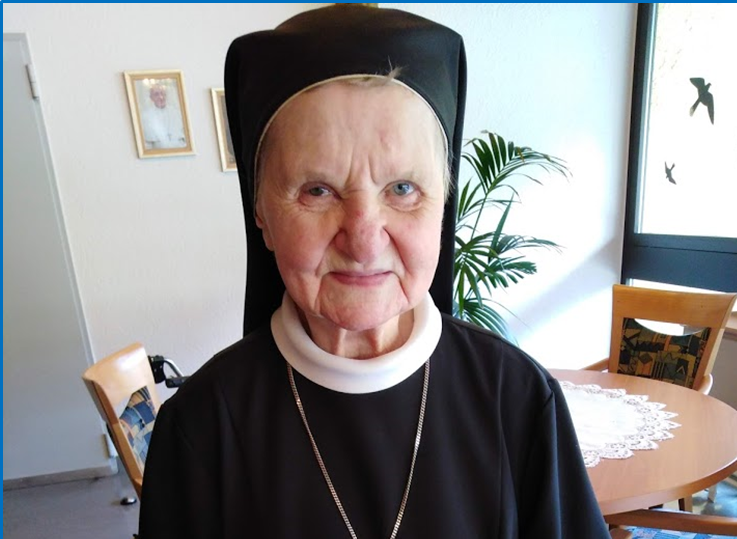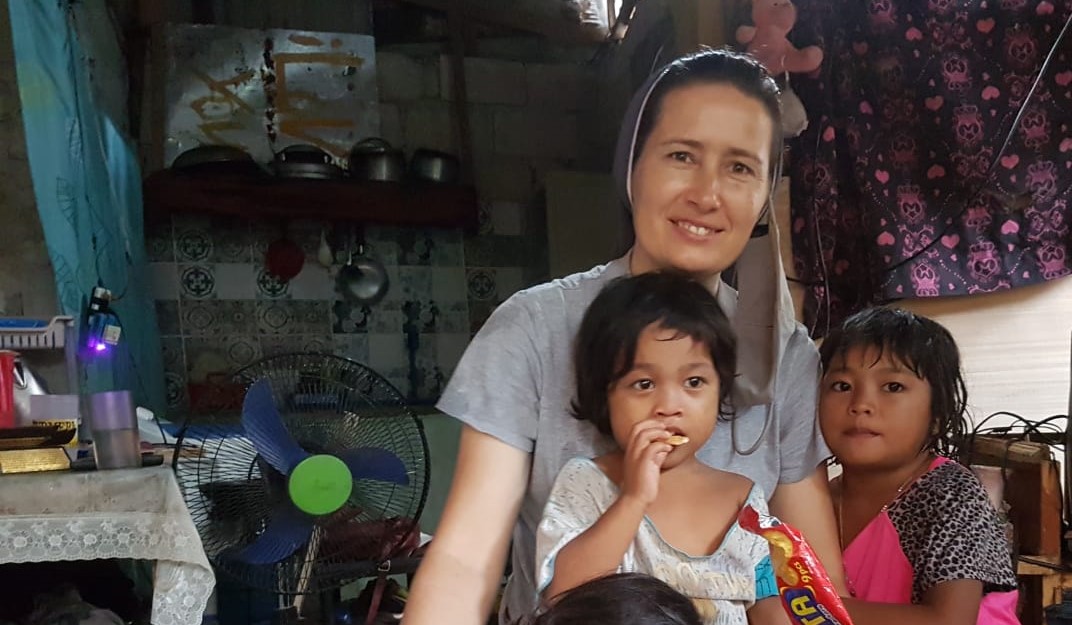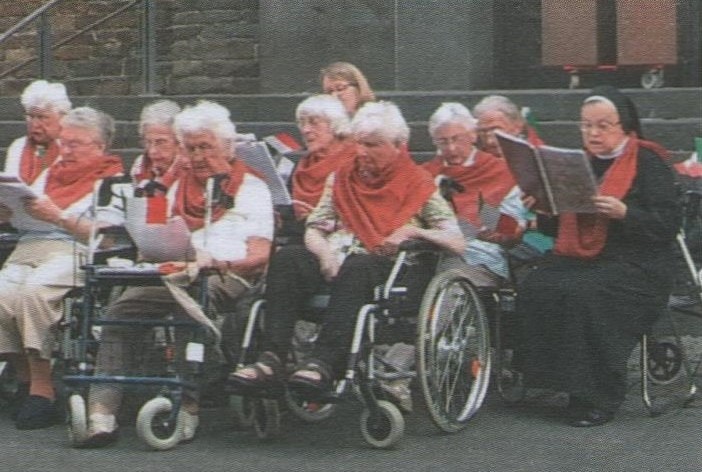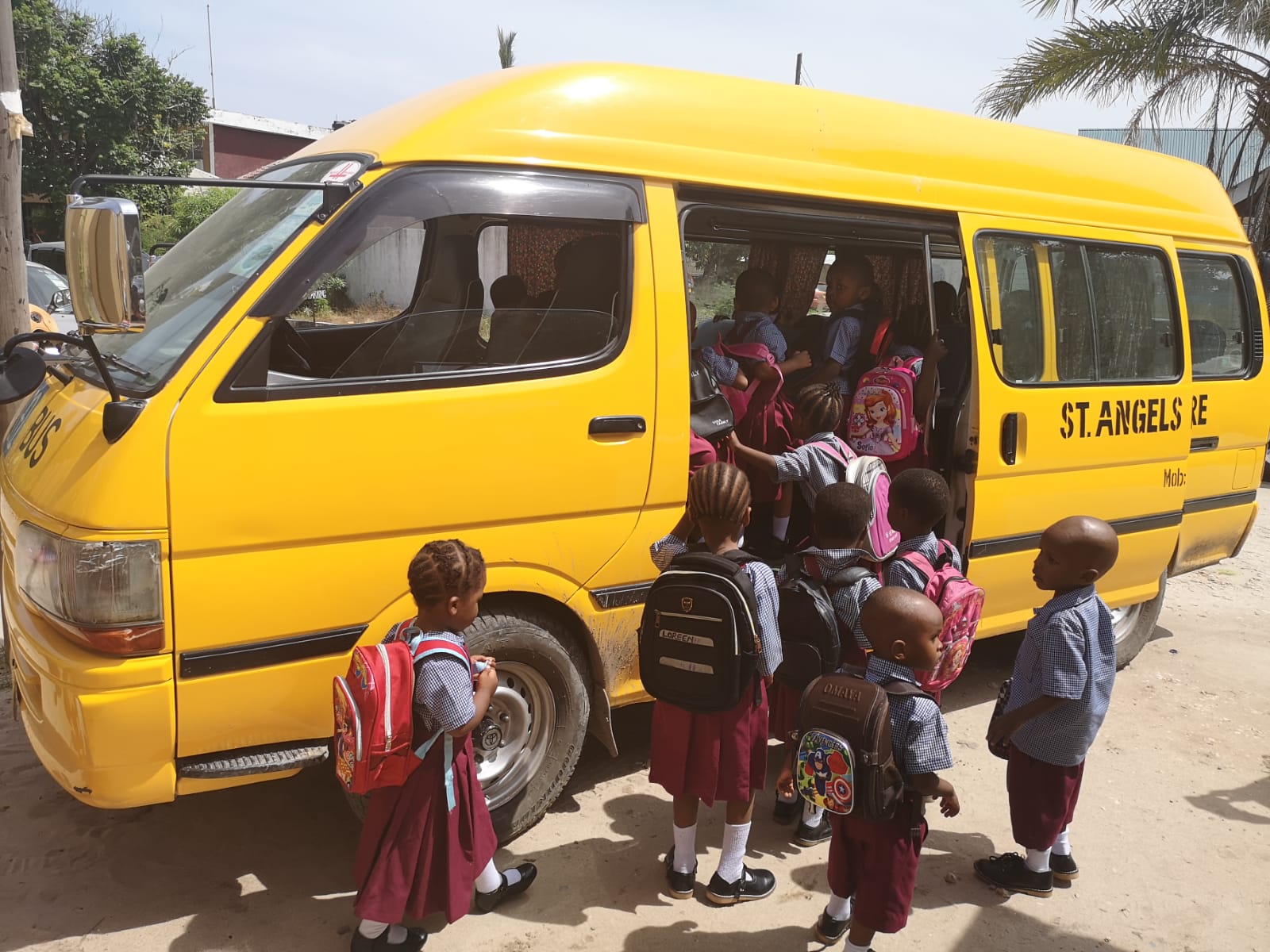
Oct 29, 2020 | NEWS
There is spread of Corona everywhere and all the restrictions spoken – yes it is to be taken seriously …
But there is also something else in this world –
Namely – a special day with the sisters in Cochem on the Klosterberg. Our sister M. Franziska today on October 28, 2020 is turning 95 years old. Unfortunately we did not have holy mass in the house, but we had the feast with the sisters with a word service in our beautiful chapel on the topic:
„Lord you know me –
You see me through to the bottom“
after Ps. 139 began.
Of course, the well-known and beloved songs like – Closer even closer to her heart became firmly established there too. Jesus pulled her in joy and pain … and Hail Queen song.
All of the sisters then enjoyed lunch in the refectory – the ice cream portions are particularly important.
When I asked Sister Franziska if she would be young again whether she would go to the Sisters of Mary again. Her answer to that, ‘“of course, Sister Superior – I know the sisters from home, because the Sisters of Mary were in Priestewitz and Sister Asisa once bandaged my arm. Yes, and because she helped me so well, she was always allowed to cut the flowers herself in our garden for the Mother of God in the church. Our whole family had a good relationship with Our Lady and the Sisters of Mary and that will last as long as we live.“
Sister Franziska is the oldest sister in the German Province and we are grateful that she lives here in our convent !!!
Sister M. Felicitas

Oct 29, 2020 | POSITIVE IMPULSES
Normally big changes and big effects are considered significant. But the reality is that the small changes are those work best. Waiting for big changes and big inspirations, we lose the small inspirations which can have big effects. Listen to the small inspirations in your heart and act accordingly to unleash the power of good around you. Don’t wait for big changes to happen but make small changes to do more good and you will see the spark growing bigger around you.
Don Giorgio

Oct 26, 2020 | NEWS
Pope John Paul II in the Encyclical on missions; “Redemptoris Missio” wrote such words: “The testimony of Christian life is the first and irreplaceable form of mission.”
“The evangelical witness to which the world is more sensitive is paying attention to people and love shown to the poor and the little ones who suffer. ” (R.M., point 42)
So each of us is a missionary in our environment in which we live and fulfill our apostolate.
I am grateful to God that again after a 3-year break, I can serve in missions of our Congregation and Church, this time in the Philippines, in the capital of the country, Manila.
It is a huge city of 20 million people created from the merger of 16 adjacent cities. I think that here, more than anywhere else, you can observe the existing contrasts on various levels.The first is both conspicuous wealth and poverty – often extreme.
You can see beautiful rich houses, shopping malls, skyscrapers and streets like from movies of American districts, and a few kilometers away shantytowns and slums, people living in barracks – huts made of leftovers found in a garbage can, without access to water, electricity and current, in an area that looks like one huge garbage can.
Some families with children live directly on the street or under a tree or bridge or in the cemetery.The second contrast is Filipino Catholicism. On the one hand, over 90 percent of people are Catholics and you can see religiosity outside, e.g. in a supermarket at noon through megaphones the Angelus prayer is conducted, and at 3 p.m. prayer to the Divine Mercy, each motorbike and cars you will find a rosary, almost every house has figurines and religious paintings, and on the other hand, a small percentage of Catholics attend Mass, almost all of them.They receive Holy Communion, and confession is hardly ever said, as evidenced by it no confessions in a typical parish church. LGBT propaganda stayed that way strongly accepted by society that people with a different sexual orientation manifest their otherness completely freely and are not even heard in the church Christian teaching on the subject. Many couples live without getting married and quickly break up, creating new relationships. And in civil law, divorce is not granted, only one can apply for marriage annulment. The abortion law is also restrictive, i.e. a total ban. Until some 15 years ago, the Philippines was full of priestly and religious vocations, and nowadays there is a huge vocational crisis. A lot of religious congregations – especially there are no completely new pleasures for women, and what is worse, many Filipino sisters are leaving religious life.Unfortunately, our Congregation also has not yet lived to see local slowdowns, though strenuous prayers and participation in numerous vocational activities on various islands of the country. We are currently waiting for the arrival of candidate Rachel, who is unable to travel due to the pandemic. Our sisters here in Manila have undertaken various missions and apostolates as a center tutorial for girls, kindergarten, catechesis at school and other activities for the benefit of the local society. When I joined the community two years ago, sister Martyna introduced me to for several years she has been carrying out an apostolate in one of the poorest neighborhoods in Manila – Payatas, just a few kilometers from our home.
It is a trash district where rubbish is brought from all over the city and a large proportion of the people living in the city, segregates rubbish in conditions that degrade people dignity, too meager, the lowest wage, enough for a little rice for the family. That is why in this district a large number of people, especially children, are malnourished, which results in high mortality – especially in children. For this reason, the sisters considered it right to start the so-called feeding programs for children,which is also run by the parish under which this poor area inhabited by 100 people. Using the experience of the local parish, we first choose the place where it is most poor families with children, often it is an ordinary square or chapel area, we visit these families, at the same time enrolling children in the program, it is a group of up to 50 children – depending on the funds obtained for a given program. Every day from mothers of these children prepare a warm, nutritious meal from Monday to Friday fruits, thus learning how to properly nourish these children, and we coordinate this work and give the children vitamins. Such programs also include, in addition to the meal, which is the main focus, also educational activities for children and catechesis. We first conduct a prayer with the children, often sung, then a short catechesis on a selected topic, and then educational activities depending on the age of children: pre-school, school, learning English. Children eagerly participate in the activities, because it is a time for them, where they are surrounded by care, attention and love that they often don’t have in the family. Mothers also help us with organization of classes and meals. Such a program lasts 6 months, then we look for a nother places to look after and help as many families as possible. Through close contact with children, we also get to know their families and problems by visiting often their homes. This is an opportunity to come to the rescue as far as possible specific, difficult situation. It is often help with getting medicine or getting to hospital.Sister Barbara was very moved by the conditions in which these families often live -wet, dirty barracks, without water and light, with a group of small children, she collected from her own friends some money and managed to buy 3 houses for 3 families with children. Now that we visit these families you can see a big difference in the lives of these families. They hope for a better future, they also try to take care of the family more, children go to school, they are there clean and tidy, the house becomes beautiful and the joy of guests is on their faces. We collect funds for this apostolate from benefactors from Poland, Germany and other countries and church organizations. Every Saturday we organize meetings for children from the neighborhood at our house.The Main goal is to teach children Christian values, catechesis and spending profitable and joyful time. About 50 children come, sometimes more.
We are assisted in these activities by the vicar priest from our parish, who leads catechesis in .local language – Tagalog. Children have a multimedia presentation and drawing classes connected with catechesis, then various games and activities, and finally a modest, warm meal, without which in the Philippines it is impossible to conduct a successful meeting. We also provide assistance in education to a small group of high school youth, leading the so-called scholarship (something like a scholarship). They are the poorest youth from the area families. In return for this help, they volunteer during Saturday meetings with children and help with various housework. They have also been provided by us for spiritual formation. The current time of the pandemic has forced us to limit our external action, but I trust that everything is in God’s Hands and that everything will soon be back to normal. Through prayer and sacrifice, as Jesus teaches us, we can sometimes do more than with our hands. May God be glorified in everything! Please pray for the missions, including those in the Philippines, that we can continue here in the Philippines and God grant to other Asia countries the missionary work of Koscius and our Congregation.
With greetings and prayer for all mission friends
Sr. Klaudia Olejniczak

Oct 23, 2020 | NEWS
In the retirement home St. Katharina in Treis-Karden the choir director, Sr. M. Ursula Potulski, tells the story of how this came about extraordinary choirs:
„The rusty throats“ were created at the suggestion of an employee at one Advent celebration 2013. It took until September 2014 until we got on 14.09.2014 with 16 residents of our senior citizens house and the daughter-in-law of a resident, Mrs. Löhr, who was able to hold the 1st choir rehearsal. We rehearsed autumn songs for the autumn festival and had success. When we went for the rehearsal of Advent celebrations, it was harder to find beautiful songs than it should be Advent and not yet Christmas chorus. Mrs. Löhr really liked helping me. She played our wish songs from CD’s and copied the texts. Also the employees of the administration and the social service have always supported me. I could always come and ask if they’d read lyrics from songs for me, print among other things .. The employees even designed and helped us with the song folders Cover sheet and empty sleeves provided so that I always have the old songs taken out and insert the new sheets. During various times, Ms. Löhr directed the choir on hospital stays or rehabilitation of mine, otherwise it would not have continued. Our repertoire includes film Melodies from the 20s – 60s, operetta melodies and musicals and of course also folk songs. For Mother’s Day 2015 we gave a one-hour concert and everyone was very excited. This year our 6th Mother’s Day concert should have taken place, but Corona has interrupted our plans. Our last choir rehearsal was on March 9th, 2020. Of course we also sang at Holy Mass on some public holidays and the Singers have always been very proud of it. A special event for us was when we recorded a CD. It was very exciting for us, because 2 employees from the recording studio came to us. 12 Songs were recorded and we had to sing each song twice. It was very exhausting for the singers, but they were very proud when the people praised them for their perseverance and clear pronunciation.
The television was also with us and broadcast for 1 minute through our choir. 3 years ago we sang at the parish festival, where we had a “musical Italy trip “, with songs like:” Come with me to Italy “, “O mia bella Napoli”, “Wenn bei Capri ..” etc. with the song “Arrivederci Roma” all singers waved an Italian flag. It was a great success.
By the way, when we perform in choirs we wear reddish-brown scarves to match the names. Our nursing manager got us these scarves. Our names were created by the residents themselves, who said their voice was now rusty.
Yes, and now we are not allowed to sing at all, neither choir rehearsals nor singing circles in worship. It’s a shame and the residents always ask: when we are finally singing again.
Sr. Ursula Potulski

Oct 9, 2020 | NEWS
Dear Mission friends,
Best warm regards from Tanzania. Six years have passed in my missionary work in Tanzania, where I was sent by my Congregation of the Sisters of Mary Immaculate. I currently live and work in Dar es Salaam. I am involved in the kindergarten, ST. ANGELS DAY CARE CENTER, I take care of the supply and the economic side of the facility by working with the Tanzanian, Sister Angela who is the director.
Dar es Salaam is a port city that is still developing. Since I came to this country, I notice new roads, more and more cars. Rail transport for both passengers and luggage is developing. Not only our city, but the whole country is developing dynamically. Our Congregation has been present in Tanzania since 1973. Our concern is directed primarily to children, young people and women, but also to all those in need. We have been in Dar es Salaam since 2001. At first it was only catechesis in nearby schools and work in the parish. In 2006, the construction of a nursery was started in order to take care of children and thus enable young mothers to work. Before the construction was completed, it turned out that a kindergarten was more needed. And so it happened, a kindergarten was built, which is still functioning today.
The first group of children was only seven, but the school year ended with 36. Every year the number of children increases. This year we have 120 preschoolers. They are children of different kinds of life and faith.
Some children live at a considerable distance from the kindergarten, so they use the transport offered by our school. The school means of transport is an old bus that breaks down frequently. This makes the organization of school activities difficult and is also very expensive. The kindergarten is increasingly feeling the obstacles related to vehicle repair. We’re trying to raise funds for a newer bus.
The cost of the new car is $ 40,000.
I applied to MIVA POLSKA for funding ($ 15,000) and to the Polish Embassy in Tanzania ($ 12,000). For our goal to be reached, we need another $ 13,000. We save on expenses, but it is still not enough, we count on the gift of the heart and the support of our friends. Together we can do more, give Tanzanian children an opportunity for education.
With cordial greetings, remembrance in prayer
Sr. M. Monika Kowarsz SM





